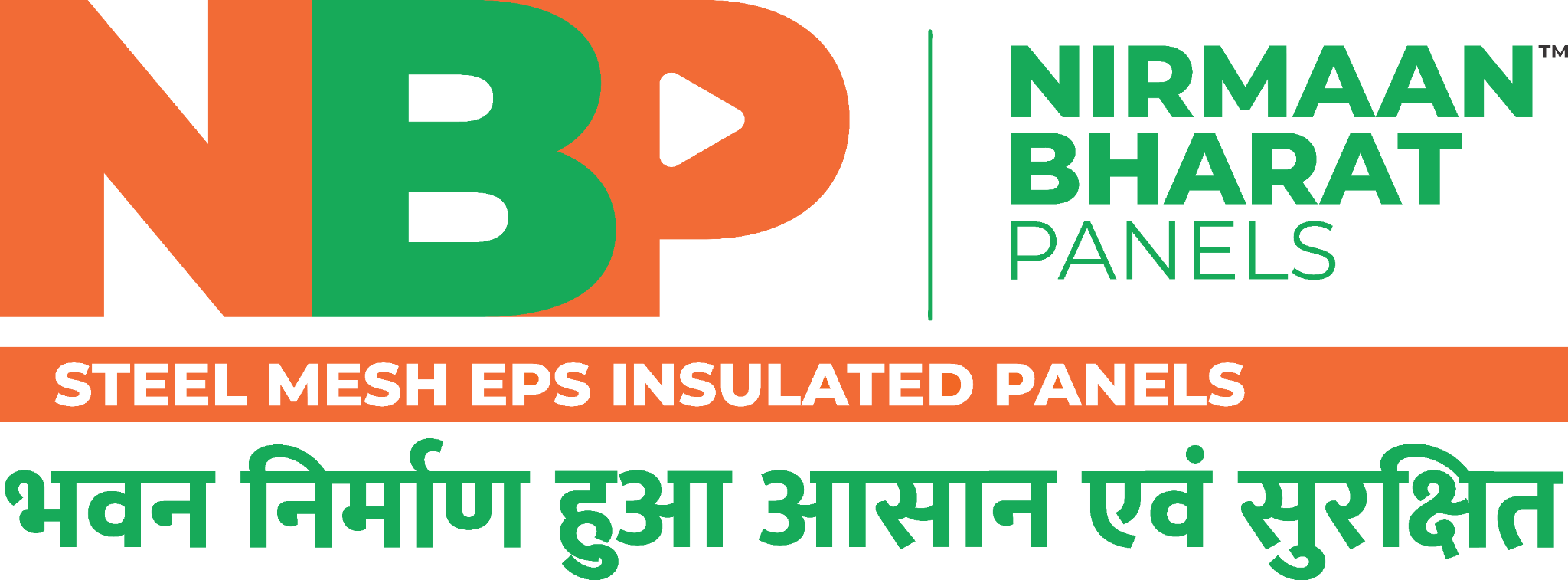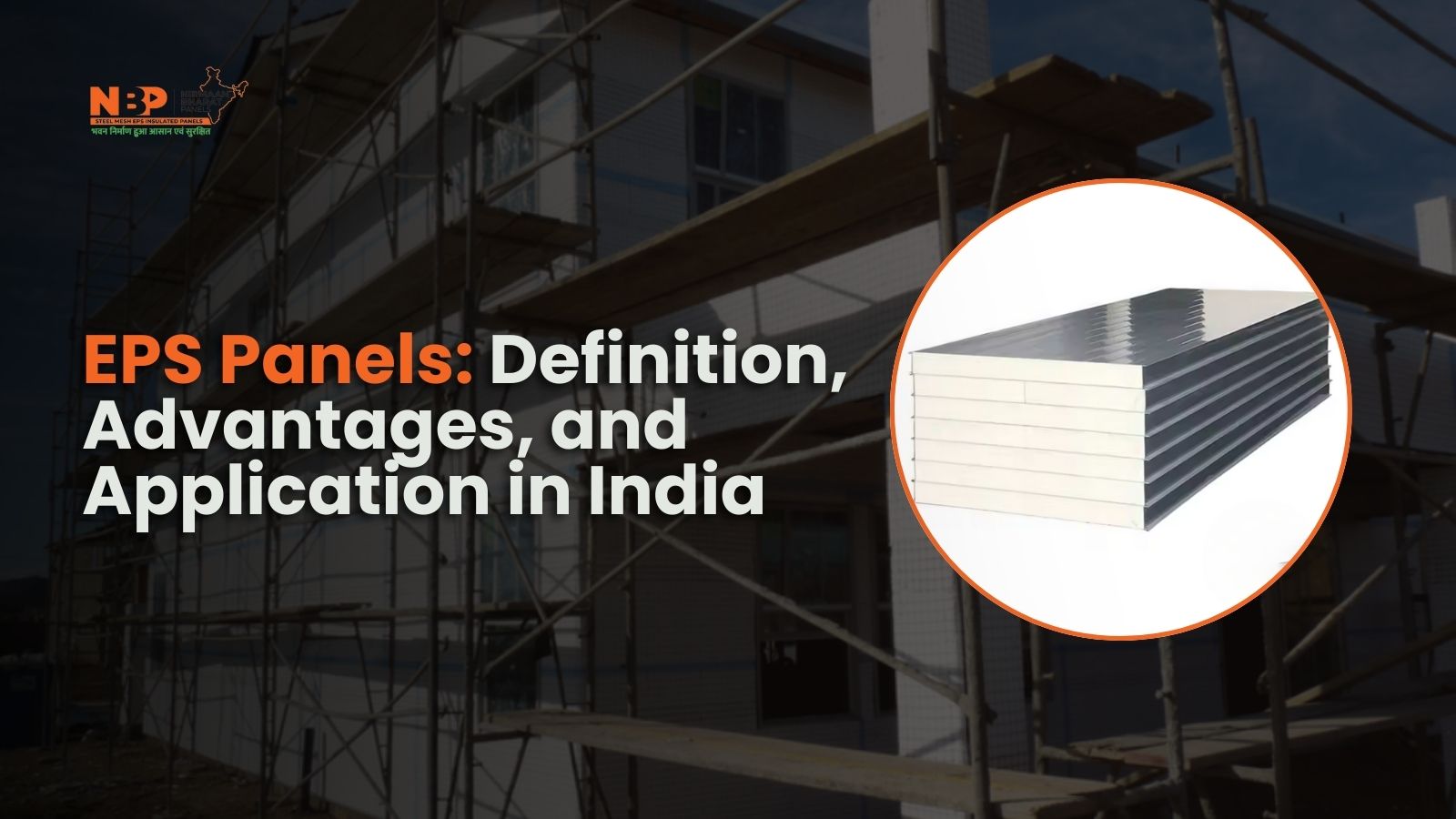India’s construction and infrastructure sector is undergoing a transformative phase, with innovative solutions gaining traction. One such breakthrough technology is EPS Panels, a highly efficient and cost-effective solution for modern construction. Known for their versatility and energy efficiency, EPS Panels in India are rapidly becoming a preferred choice for builders and architects. This blog will explore EPS panels in detail, including their definition, advantages, and diverse applications in the Indian context.
Table of Contents
ToggleWhat Are EPS Panels?
EPS (Expanded Polystyrene) panels are lightweight construction materials made from a core of expanded polystyrene sandwiched between two outer layers of galvanized steel or cement boards. The polystyrene core is a thermoplastic material that contains 98% air and 2% polystyrene, giving it remarkable insulation and lightweight properties.
These panels are manufactured through a process where polystyrene beads expand under heat to form a rigid, foam-like structure. The outer layers provide strength, making EPS panels a highly durable and versatile material for construction.
Advantages of EPS Panels
EPS panels offer a wide range of benefits, making them ideal for construction in a country like India, where cost efficiency, speed, and sustainability are critical.
1. Lightweight and Easy to Handle
EPS panels are significantly lighter than traditional construction materials like brick and concrete. Their lightweight nature simplifies transportation, handling, and installation, reducing construction time and labour costs.
2. Energy Efficiency
One of the most notable characteristics of EPS panels is their superior thermal insulation properties. In India, where extreme weather conditions are common, EPS panels help maintain indoor temperatures, reducing the need for air conditioning or heating. This leads to considerable energy savings.
3. Cost-Effective Construction
By reducing material transportation costs, labour expenses, and construction time, EPS panels provide a cost-effective alternative to traditional building materials. Additionally, their energy-saving properties contribute to long-term operational cost reduction.
4. Eco-Friendly and Sustainable
EPS panels are environmentally friendly as they are recyclable and made with minimal wastage during manufacturing. Moreover, their insulation properties reduce energy consumption, aligning with India’s goals for sustainable development.
5. High Strength and Durability
Despite being lightweight, EPS panels are incredibly strong. The combination of the polystyrene core with outer layers of steel or cement provides high resistance to impact, moisture, and pests, ensuring long-lasting performance.
6. Fire Resistance
EPS panels are often treated with fire-retardant materials, making them safe for use in residential, commercial, and industrial buildings.
7. Versatility in Design
EPS panels can be customized to suit various design requirements. They are available in different sizes and thicknesses, making them suitable for walls, roofs, and flooring applications.
Different Types of EPS Panels
EPS panels are available in various types, each designed to meet specific construction requirements. The following are the most common types:
1. Standard EPS Panels
These panels are widely used in residential and commercial construction for walls, partitions, and roofing. They provide basic thermal insulation and are cost-effective for general applications.
2. EPS Sandwich Panels
As mentioned earlier, these panels feature a polystyrene core sandwiched between steel, cement, or fibre-reinforced sheets. They are ideal for prefabricated structures, industrial facilities, and temporary shelters.
3. EPS Cement Panels
These panels combine EPS with cement to provide enhanced fire resistance and durability. They are commonly used in applications requiring high structural strength, such as flooring or load-bearing walls.
4. EPS Roofing Panels
Designed specifically for roofing, these panels offer excellent thermal insulation and weather resistance. They are lightweight, reducing the load on the structure, and are easy to install.
5. Structural Insulated Panels (SIPs)
SIPs are an advanced form of EPS panels that combine the polystyrene core with oriented strand boards (OSB) or other structural materials. These panels are used in energy-efficient buildings and green constructions.
Applications of EPS Panels in India
EPS panels are revolutionizing the construction industry in India due to their adaptability and cost-efficiency. Below are some of the prominent applications:
1. Residential Construction
In urban areas where space is limited and construction speed is essential, EPS panels are widely used for building houses, apartments, and villas. They serve as walls, partitions, and even roofing, offering excellent thermal insulation and durability.
2. Commercial Buildings
EPS panels are increasingly used in the construction of office spaces, retail outlets, and showrooms. Their lightweight nature and energy efficiency make them an ideal choice for creating comfortable and sustainable commercial environments.
3. Industrial Applications
Industries in India are adopting EPS panels to construct warehouses, factories, and cold storage units. The thermal insulation properties of EPS panels make them particularly suitable for temperature-controlled environments.
4. Prefabricated Structures
The prefabrication trend in India is growing rapidly, and EPS panels are at the forefront of this movement. They are used to create modular homes, portable cabins, and site offices, offering quick assembly and disassembly.
5. Educational and Healthcare Facilities
Schools, colleges, and hospitals in India require cost-effective and thermally insulated infrastructure. EPS panels fulfil these requirements, providing sturdy and comfortable spaces for learning and healthcare.
6. Rural Housing and Affordable Housing Schemes
India’s government is pushing for affordable housing under initiatives like Pradhan Mantri Awas Yojana. EPS panels are an excellent fit for such projects due to their low cost, easy installation, and minimal maintenance requirements.
7. Disaster Relief Housing
In areas affected by natural disasters, EPS panels are used to construct quick, temporary shelters. Their lightweight and easy-to-install nature ensures rapid deployment in emergency situations.
The Growing Demand for EPS Panels in India
The demand for EPS Panels in India is on the rise due to several factors:
1. Rapid Urbanization
With India’s urban population growing at an unprecedented rate, there is a need for faster and more efficient construction methods. EPS panels provide a perfect solution by enabling quicker project completion.
2. Government Policies and Initiatives
The Indian government’s focus on affordable housing and sustainable development is driving the adoption of EPS panels. These panels align with the objectives of schemes like “Housing for All” and “Smart Cities Mission.”
3. Sustainability Focus
EPS panels help reduce the carbon footprint of construction projects, making them a preferred choice for developers and architects aiming for green building certifications.
4. Rising Energy Costs
With energy costs rising, the demand for thermally insulated construction materials like EPS panels is increasing. Their ability to reduce energy consumption makes them a cost-efficient choice.
5. Innovation in Construction Techniques
The adoption of modern construction techniques such as prefabrication and modular construction has further boosted the popularity of EPS panels in India.
Challenges in Adopting EPS Panels in India
While EPS panels offer numerous advantages, there are challenges that need to be addressed for their widespread adoption:
1. Limited Awareness
Many builders and developers in India are still unaware of the benefits of EPS panels. Awareness campaigns and training programs can help bridge this gap.
2. Initial Investment Costs
Although EPS panels are cost-effective in the long run, their initial costs may be higher than traditional materials, deterring some developers.
3. Skilled Workforce
The installation of EPS panels requires a skilled workforce. Training programs should be introduced to equip workers with the necessary skills.
4. Misconceptions About Strength
Some people perceive EPS panels as less durable compared to traditional materials. Educating stakeholders about their high strength and impact resistance is essential.
Future of EPS Panels in India
The future of EPS Panels in India looks promising. With advancements in manufacturing technology and increasing awareness of their benefits, EPS panels are set to become a cornerstone of the Indian construction industry.
1. Integration with Smart Building Technologies
EPS panels can be integrated with smart building technologies to create energy-efficient and sustainable structures.
2. Expansion into Rural Markets
As India focuses on rural development, EPS panels can play a crucial role in providing affordable and durable housing in remote areas.
3. Collaboration with Government Initiatives
Government schemes promoting sustainable and affordable housing will further drive the adoption of EPS panels.
4. Export Potential
With India’s growing reputation as a manufacturing hub, EPS panels can become a significant export commodity, catering to global demand.
Conclusion
EPS panels are revolutionizing the construction industry by offering a cost-effective, energy-efficient, and sustainable alternative to traditional materials. Their lightweight and versatile nature makes them ideal for a wide range of applications, from residential housing to industrial infrastructure.
As India moves towards rapid urbanization and sustainable development, the adoption of EPS Panels in India is expected to surge. By addressing challenges like awareness and skill development, the construction sector can fully harness the potential of this innovative material.
With their ability to meet India’s unique construction needs, EPS panels are undoubtedly paving the way for a smarter, greener, and more sustainable future.
FAQs on EPS Panels
Q1. What are EPS panels, and how are they different from traditional construction materials?
Ans: EPS (Expanded Polystyrene) panels are lightweight, durable building materials made with a core of expanded polystyrene sandwiched between outer layers of steel or cement boards. Unlike traditional materials like bricks or concrete, EPS panels are lighter, easier to install, and provide superior thermal insulation. They also enable faster construction and are more eco-friendly.
Q2. Are EPS panels suitable for India’s climate and construction needs?
Ans: Yes, EPS panels are highly suitable for India’s diverse climate. Their excellent thermal insulation helps maintain comfortable indoor temperatures in both hot and cold regions, reducing energy costs. Additionally, their lightweight and durable design makes them ideal for various applications, including residential, commercial, and industrial projects across India.
Q3. Are EPS panels environmentally friendly?
Ans: Yes, EPS panels are eco-friendly. They are made with minimal waste during manufacturing and are recyclable. Moreover, their thermal insulation properties reduce energy consumption, contributing to lower carbon footprints in construction projects, aligning well with India’s push toward sustainable building practices.
Q4. What are the primary applications of EPS panels in India?
Ans: EPS panels are widely used in India for:
- Residential: Homes, apartments, and villas for walls, partitions, and roofs.
- Commercial: Offices, retail stores, and showrooms.
- Industrial: Warehouses, factories, and cold storage units.
- Prefabricated Structures: Modular homes, site offices, and portable cabins.
- Affordable Housing: Government schemes and rural housing projects.



